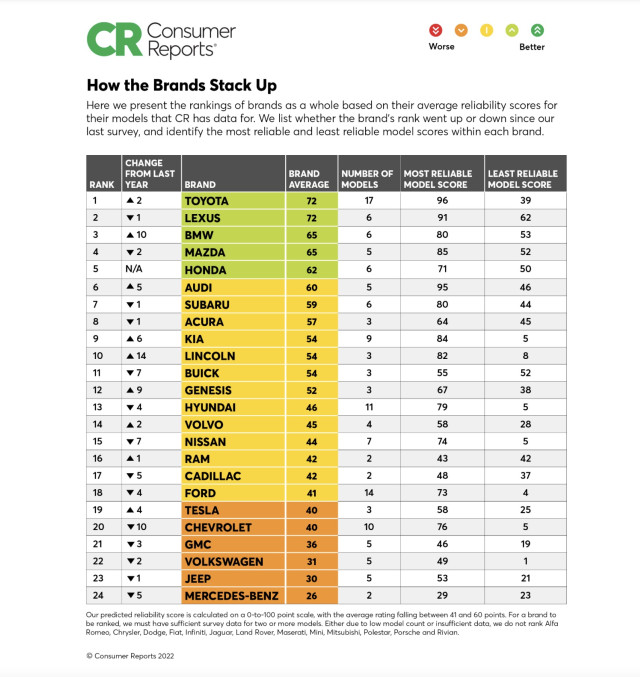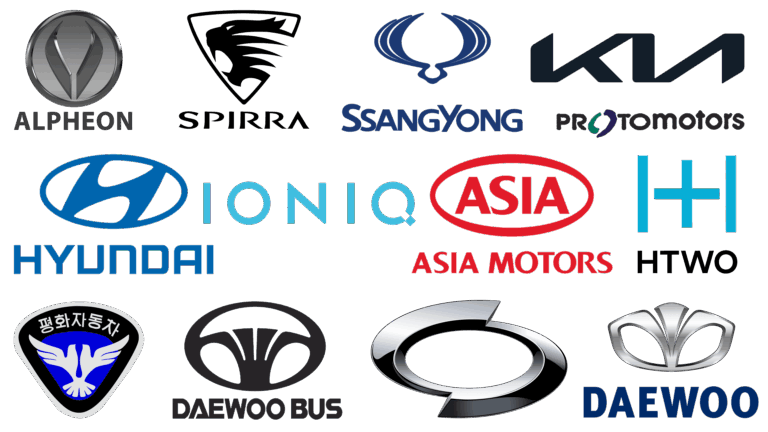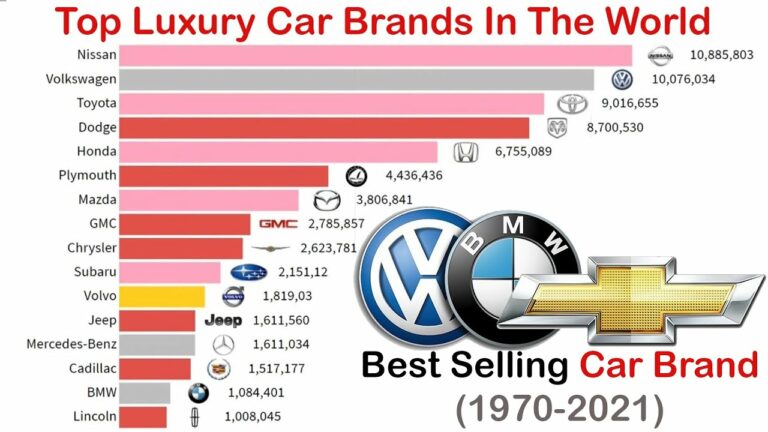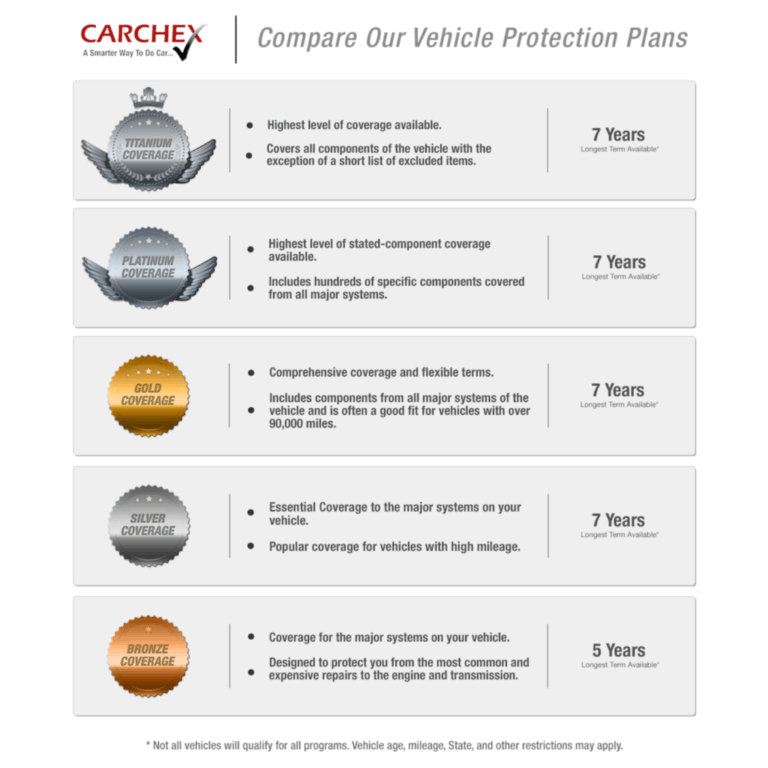Best Reliable Car Brands: Your Ultimate Guide to Long-Lasting Automotive Excellence
Best Reliable Car Brands: Your Ultimate Guide to Long-Lasting Automotive Excellence cars.truckstrend.com
In the complex world of automotive choices, one factor consistently rises to the top of every savvy buyer’s list: reliability. A reliable car isn’t just a convenience; it’s an investment in peace of mind, safety, and financial stability. It means fewer unexpected breakdowns, lower long-term ownership costs, and a vehicle that consistently performs as expected, year after year. But what exactly defines "reliability" in the automotive context, and which brands have truly earned their stripes in this crucial category?
This comprehensive guide delves deep into the essence of car reliability, identifying the benchmarks, highlighting the top-performing brands, and offering actionable insights to help you make an informed decision that stands the test of time.
Best Reliable Car Brands: Your Ultimate Guide to Long-Lasting Automotive Excellence
Defining Car Reliability: More Than Just Miles
Car reliability is a multifaceted concept that encompasses a vehicle’s ability to consistently perform its intended functions without major defects or failures over a prolonged period. It’s not merely about how many miles a car can accumulate, but rather how consistently it does so without requiring costly, unexpected repairs.
Key indicators and factors contributing to a brand’s reputation for reliability include:
- Low Incidence of Breakdowns: The car starts, runs, and operates smoothly day in and day out.
- Minimal Unscheduled Repairs: Few trips to the mechanic outside of routine maintenance.
- Low Repair Costs: When repairs are needed, they are typically less expensive than average.
- Durability of Components: Engines, transmissions, electronics, and other critical systems are built to last.
- Strong Resale Value: Reliable cars tend to hold their value better over time due to their dependable nature.
- Positive Consumer Reports and Industry Studies: Data from organizations like J.D. Power, Consumer Reports, and RepairPal consistently rank brands based on owner-reported problems and repair frequencies.

Ultimately, a reliable car minimizes stress, saves money, and ensures you can count on your vehicle when you need it most.
The Pillars of Reliability: Top Contenders in the Automotive World

While automotive technology continually evolves, a select group of brands consistently rank at the top for reliability, often due to their meticulous manufacturing processes, robust engineering, and a long-standing commitment to quality.
-
Toyota: Often considered the gold standard for reliability, Toyota’s reputation is built on decades of consistent performance. Their vehicles, from the Corolla and Camry to the Highlander and RAV4, are renowned for their incredible longevity, low maintenance costs, and exceptional resale value. Toyota’s manufacturing philosophy, centered on efficiency and defect prevention (the "Toyota Production System"), is a key driver of their enduring quality.
-
Lexus: As Toyota’s luxury division, Lexus inherits the parent company’s bulletproof reliability while adding premium materials, advanced technology, and refined driving experiences. Lexus consistently tops reliability surveys, often ranking as the most reliable luxury brand. Their sedans (ES, LS) and SUVs (RX, GX) offer opulent comfort without sacrificing dependability, proving that luxury and longevity can coexist.
-
Honda: Another Japanese powerhouse, Honda is celebrated for its highly engineered engines, smart packaging, and durable vehicles. Models like the Civic, Accord, CR-V, and Pilot are mainstays on reliability lists. Honda’s commitment to fuel efficiency and driver engagement often comes hand-in-hand with robust construction, making them a popular choice for those seeking a reliable yet enjoyable driving experience.
-
Mazda: In recent years, Mazda has significantly climbed the reliability rankings. While often praised for their engaging driving dynamics, Mazda has also quietly built a reputation for excellent build quality and fewer reported issues. Their Skyactiv technology, focusing on efficiency and performance, has also proven to be highly reliable. Models like the Mazda3, CX-5, and CX-9 offer a premium feel and impressive dependability without the premium price tag.
-
Subaru: Known for its standard Symmetrical All-Wheel Drive system and Boxer engines, Subaru has cultivated a loyal following based on safety, capability, and reliability. Their vehicles, including the Outback, Forester, and Crosstrek, are built to withstand diverse conditions, making them a popular choice in regions with harsh weather. While their unique engine design can sometimes lead to higher repair costs when issues do arise, the frequency of those issues is remarkably low.
-
Hyundai/Kia: These South Korean sister brands have made remarkable strides in reliability over the last two decades. Once considered budget-friendly alternatives, Hyundai and Kia now compete directly with Japanese giants in terms of quality and dependability. Their generous warranties (often 5-year/60,000-mile basic and 10-year/100,000-mile powertrain) reflect their confidence in their products. Models like the Hyundai Elantra, Sonata, Santa Fe, and Kia Forte, Sorento, and Telluride offer excellent value, modern features, and strong reliability scores.

Beyond the Badge: Factors to Consider When Buying a Reliable Car
While brand reputation is a strong indicator, smart buyers delve deeper. Here’s what else to consider:
- Model-Specific Reliability: Even within a highly reliable brand, certain models might have specific quirks or known issues. Always research the specific model and year you’re interested in using resources like Consumer Reports, J.D. Power Vehicle Dependability Study, and online owner forums.
- Powertrain Options: Some engine and transmission combinations are more reliable than others. For example, naturally aspirated engines often have fewer complex components than turbocharged ones, potentially leading to fewer issues.
- Maintenance History (for Used Cars): A car’s reliability is heavily influenced by how well it has been maintained. For used vehicles, always request a detailed service history. Regular oil changes, fluid flushes, and timely repairs are crucial.
- Warranty Coverage: A robust warranty (basic and powertrain) provides peace of mind. Brands like Hyundai and Kia offer particularly long powertrain warranties, signaling their confidence in their vehicles’ long-term durability.
- Cost of Ownership: Look beyond the purchase price. Factor in projected fuel costs, insurance premiums, and average annual repair costs (which reliable brands generally keep low). Websites like RepairPal can provide estimates for specific models.
- Intended Use: Your driving habits and environment also play a role. If you plan on heavy towing, frequent off-roading, or extensive city driving, ensure the vehicle is designed for such demands and that its reliability holds up under those conditions.
Maintaining Reliability: Your Role in Longevity
Even the most reliable car can succumb to neglect. Your proactive involvement in its care is paramount to ensuring its long-term dependability:
- Follow the Manufacturer’s Maintenance Schedule: This is non-negotiable. Adhere to recommended intervals for oil changes, tire rotations, fluid checks and replacements (transmission, brake, coolant), spark plug replacements, and timing belt/chain inspections.
- Don’t Ignore Warning Lights: A check engine light or other dashboard warning is your car’s way of telling you something is wrong. Address it promptly to prevent minor issues from escalating into major, costly repairs.
- Use Quality Parts and Fluids: When replacements are needed, opt for OEM (Original Equipment Manufacturer) parts or high-quality aftermarket equivalents. Use the correct type and grade of oil and other fluids specified in your owner’s manual.
- Regular Inspections: Beyond scheduled maintenance, get your car inspected periodically by a trusted mechanic. They can spot potential problems early, before they become critical.
- Drive Responsibly: Avoid aggressive driving, sudden acceleration/braking, and prolonged high-speed operation, which can put undue stress on your vehicle’s components.
- Keep it Clean: Regular washing and waxing protect the paint and body from rust and deterioration, preserving both aesthetics and structural integrity.
Navigating Challenges: When Reliability Isn’t Enough
While choosing a reliable brand significantly reduces risks, no car is entirely immune to issues. Even top-ranked vehicles can occasionally experience:
- Recalls: Manufacturers issue recalls for safety defects. Stay informed about any recalls for your vehicle and address them promptly.
- Specific Component Failures: While rare, a particular batch of parts or a design flaw can lead to isolated problems, even in otherwise reliable models.
- The "Lemon" Factor: In extremely rare cases, a new vehicle might have persistent, unfixable defects right off the production line. Lemon laws exist to protect consumers in such situations.
The best defense against these challenges is a strong warranty, readily available parts, and a widespread, competent service network. The reliable brands discussed often excel in these areas, making it easier to resolve issues if they arise.
Best Reliable Car Brands: Comparative Overview
Here’s a table summarizing key information about some of the best reliable car brands:
| Brand | Representative Model | Typical Starting Price Range (USD) | Key Reliability Trait | Average Annual Repair Cost (Estimate) | Typical Warranty (Basic / Powertrain) |
|---|---|---|---|---|---|
| Toyota | Camry, RAV4 | $24,000 – $35,000 | Exceptional Longevity, Low Maintenance | $400 – $450 | 3yr/36k mi / 5yr/60k mi |
| Lexus | ES, RX | $42,000 – $60,000 | Premium Quality, Unmatched Durability | $550 – $600 | 4yr/50k mi / 6yr/70k mi |
| Honda | Civic, CR-V | $23,000 – $33,000 | Robust Engineering, Consistent Performance | $400 – $475 | 3yr/36k mi / 5yr/60k mi |
| Mazda | Mazda3, CX-5 | $23,000 – $32,000 | Quality Build, Engaging & Reliable | $450 – $500 | 3yr/36k mi / 5yr/60k mi |
| Subaru | Outback, Forester | $29,000 – $38,000 | All-Weather Durability, Safety Focused | $500 – $550 | 3yr/36k mi / 5yr/60k mi |
| Hyundai | Elantra, Santa Fe | $22,000 – $35,000 | Value-Packed, Improving Durability | $450 – $500 | 5yr/60k mi / 10yr/100k mi (Powertrain) |
| Kia | Forte, Sorento | $21,000 – $36,000 | Strong Warranty, Modern & Dependable | $450 – $500 | 5yr/60k mi / 10yr/100k mi (Powertrain) |
Note: Prices are approximate starting MSRPs for base models and can vary significantly based on trim, options, location, and market conditions. Average annual repair costs are general estimates based on industry data and can vary based on specific model, year, and individual driving habits.
Frequently Asked Questions (FAQ) about Best Reliable Car Brands
Q1: What is the single most reliable car brand?
A1: While reliability rankings can fluctuate slightly year to year, Toyota and Lexus consistently top most lists as the most reliable car brands due to their exceptional longevity, low repair costs, and minimal reported problems.
Q2: Are European luxury cars reliable?
A2: European luxury brands like BMW, Mercedes-Benz, and Audi have made significant strides in reliability, but their maintenance and repair costs tend to be higher than their Japanese counterparts. Some specific models are highly reliable, but overall, they often don’t match the long-term, low-cost dependability of brands like Toyota or Lexus.
Q3: Does buying a new car guarantee reliability?
A3: Buying new provides the benefit of a factory warranty, which covers most defects. However, no car is 100% defect-free. While new cars generally start with high reliability, long-term dependability still depends on the brand’s reputation and your maintenance habits.
Q4: How long do reliable cars typically last?
A4: With proper maintenance, many reliable cars from brands like Toyota and Honda can easily last 200,000 to 300,000 miles or even more. The key is consistent adherence to the maintenance schedule and addressing issues promptly.
Q5: Is it worth paying more for a reliable brand?
A5: Absolutely. While the initial purchase price might be slightly higher for some reliable brands, the long-term savings from fewer repairs, lower maintenance costs, better fuel efficiency, and higher resale value often far outweigh the initial investment. It’s an investment in peace of mind and lower total cost of ownership.
Conclusion
Choosing a reliable car brand is one of the smartest decisions you can make as a vehicle owner. It’s about more than just getting from point A to point B; it’s about investing in a dependable partner that enhances your daily life, keeps you safe, and protects your finances. By understanding what constitutes reliability, recognizing the top-performing brands, and committing to proactive maintenance, you can confidently navigate the automotive market and drive away with a vehicle that truly stands the test of time. Prioritizing reliability means choosing a future filled with fewer headaches and more hassle-free miles on the road.





